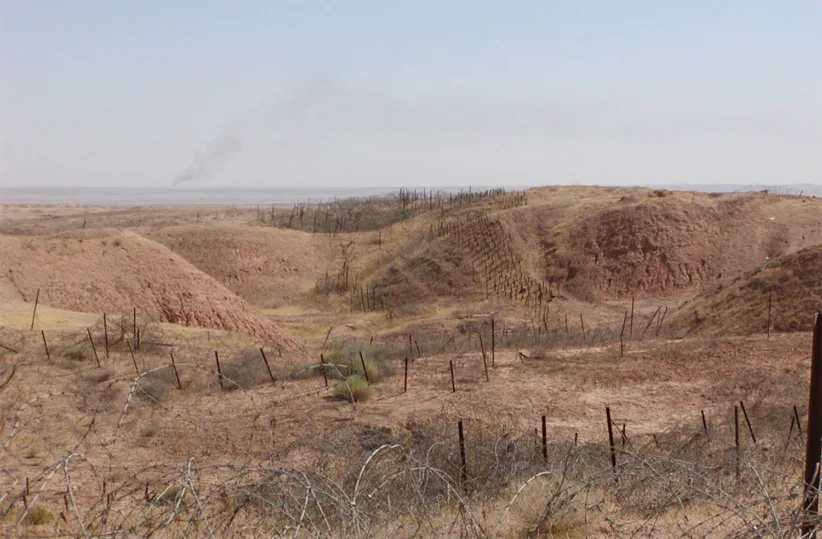NPA's programme in Iran 2001 – 2008
NPA was contacted by Norsk Hydro in January 2001 and asked to assess the possibility of assisting Norsk Hydro in their planned seismic and drilling activities in the Anaran Exploration block in Iran. As NPA is a humanitarian actor, we do not engage in commercial activities, but at this point in time the general financial situation in NPA was problematic, and the NPA board allowed for NPA to engage with Norsk Hydro under the provision that the activities did not redirect resources from our humanitarian work with landmines and unexploded ordnance, and that the possible financial surplus from the work with Norsk Hydro was injected into the humanitarian portfolio.

NPA was, and still remains, one of the leading actors in the humanitarian work of clearing landmines and other explosive remnants of war in many countries. We are currently active in more than 20 countries in the world, supporting the ambitions of the Mine Ban Treaty of 1999, providing technical and operational support to various governments as well as undertaking our own humanitarian clearance programs in many of these countries. Our activities are often in cooperation with and supported by the US Department of State and other international governmental and private supporters. Hence, the request from Norsk Hydro was based on our renowned technical and operational expertise in the field of explosives removal.
The nature of the work undertaken in the Anaran Exploration Block by NPA was mainly risk assessment, technical survey of suspected hazardous areas, clearance of objects found and training of local and international staff in MRE (Mine Risk Education). The Anaran Exploration Block is on the border between Iraq and Iran in one of the worlds highest UXO/landmine contaminated regions in the world.
The first contract with Norsk Hydro was signed in January 2001 and lasted a year, the following contracts were annually renewed until the program stopped in January 2006. In the first contract (2001) NPA provided 5 international experts in clearance and EOD (Explosive Ordnance Disposal), the experts were of various nationalities. Most of the internationals were previously working for us in the humanitarian NPA programs elsewhere. In 2002 the contract was extended for a year with the same resource requirements and similar tasks as 2001. We had a peak in 2003 when the personnel requirements were increased to 14 international experts. In 2004 the level of support was considerably reduced, and in 2004 and 2005, only two international experts were present in the block.
In January 2006 the contract ended, but NPA was approached again by Norsk Hydro late in 2007 and asked to provide two experts to support on Quality Assurance, the cooperation ended in September 2008.
In essence, the nature of the work in the described period, was information gathering and evaluation of suspected hazardous areas (SHA) on the seismic lines that Norsk Hydro had planned. We also provided hysical inspection of the SHAs, removal and clearance of explosive objects found on the seismic lines, some mine clearance, inspection and clearance of assembly points for heavy equipment, and inspection and clearance of test drilling areas. In addition, the NPA staff also undertook risk education of Norsk Hydro staff to ensure that HSE requirements for activities in explosive contaminated environments were met.
Norsk Hydro’s merged its oil and gas activities with Norwegian Oil and Gas company Statoil in 2007 and is now called Equinor.